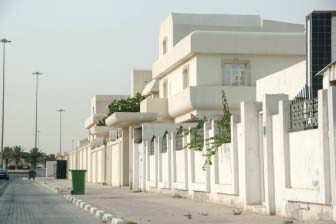
Though Qatar residents have so far been relatively well-protected from the effects of tumbling oil prices, employees are not much better off this year thanks to subdued pay rises and the soaring cost of living, a new survey has found.
According to the annual Compensation and Benefit Report for Qatar by global management consultancy Hay Group, most people surveyed received a pay rise of 4.2 percent, just above the rate of inflation.

According to the report, that rate now stands at around 3.5 percent, and has risen mostly due to increasing cost of housing.
Additionally, some 92 percent of firms paid performance-based target bonuses for their staff this year.
The latest edition of the report studied salary and benefits data from more than 212 companies in Qatar, representing approximately 115,000 individual employees.
More staff
Despite a slow-down for the energy sector, Qatar’s development targets ahead of the 2022 World Cup mean that banking, technology, real estate and construction are continuing to boom.

Employees working in these fields are seeing slightly higher than average pay rises of up to 4.5 percent this year, the report states.
Meanwhile, three-quarters of the companies surveyed said they planned to hire new staff across all levels through 2016.
This hiring boom partly reflects expansion, as the deadline to finish Qatar’s various ongoing infrastructure projects gets closer.
But it is also due to high rates of staff attrition, which is most notable among Qatari nationals, the report said.
‘Conservative’ spending
However, it also warned that many firms are planning to tighten their belts in the year ahead, if oil prices continue to remain low:
“Companies across the GCC are treading with caution and we foresee a more conservative approach to both general spending and future investment plans in both private and public sector organizations in the coming year.
However, we are yet to see any significant impact on typical indicators such as recruitment activity and compensation review plans,” Harish Bhatia, Hay Group’s regional manager, said in a statement.
Employers are most likely to try to save costs through reducing their budgets for training and development in the coming year, Bhatia said.
But he warned that such a policy is not sustainable in the longer term, as employees will look to switch jobs if they don’t feel they have sufficient opportunities in their existing company.

“In order for Qatar to develop its future leaders and achieve its goal of becoming a knowledge-based economy, organizations need to train and develop their employees. We also know that employees value development opportunities and organizations that lack these opportunities often struggle to retain their top performing talent,” Bhatia added.
During tough economic times, employers should try to retain their best staff by making pay bumps reflect performance, with top employees getting bigger increases, while those who don’t meet targets receive little or no rise, the report suggested.
The average pay rises received this year in Hay Group’s report are slightly less than the 2015 predictions made in separate study published last month by global recruitment organization Aon Hewitt.
It forecast hikes of 5.2 percent for Qatar employees during this year – less than that expected for employees in Saudi Arabia, Oman and Kuwait, but ahead of employees in the UAE and Bahrain.
Inflation hikes
While QNB said that Qatar’s cost of living is likely to remain stable through the remainder of this year, inflation is predicted to pick up again starting in early 2016, driven by continued population expansion and rising global food prices.

Two of the biggest contributors to rising costs are continued rent hikes for residential properties – up 2.4 percent on the same period last year – and significant increases in the cost of education, with school fees up 11 percent year-on-year.
Taking these costs into account, a quarter of the companies surveyed by Hay Group said they would be reviewing their employees’ housing allowances, with increases of up to 8 percent planned to help offset some of the rent rises.
However, the firms planning the increases were among those that have not raised their housing allowance in recent years and so were still playing catch-up with the market, the report said.
Late last year and earlier this year, rents were increasing by 8 percent year-on-year. An international report by Numbeo, published in July this year, found Doha to be the world’s 10th most expensive city for renting a home.
Thoughts?







